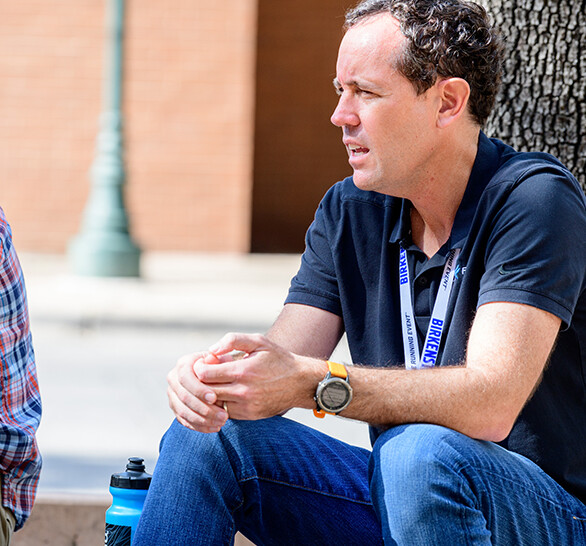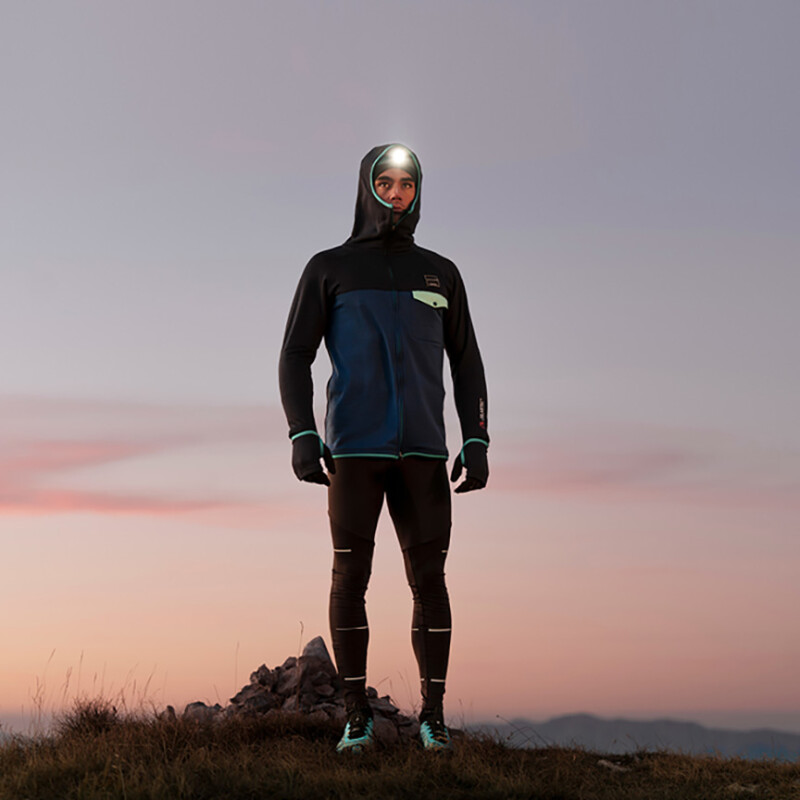B
efore crowds filled the floor of the Austin Convention Center at The Running Event earlier this month, Fleet Feet CEO Joey Pointer stood before a group of some 175 leaders from Fleet Feet and JackRabbit retail stores in an upstairs conference room. Pointer knew there was curiosity and even a bit of anxiety after news broke in early November that Fleet Feet would be acquiring nearly 60 JackRabbit running shops scattered across the U.S.
So naturally, Pointer began his program discussing … anthropological research!
Pointer shared the story of anthropology professor Margaret Mead, who, when asked about the first sign of civilization, didn’t talk about hunting tools, scribblings on a cave wall or religious artifacts, but rather a 15,000-year-old fractured femur. This particular broken bone had healed, which Mead tabbed as proof that one human had stayed and cared for their fellow traveler. Absent that altruism, Mead said, the compromised individual – unable to run from danger, find drink or hunt – would have surely died.
“Imagine how many broken femurs we’ve healed,” Pointer urged the crowd.
A Deal Comes Together
At its core, Fleet Feet’s work, he reminded, is about helping others find fitness or improved mental health or a richer sense of place or purpose or, in an ideal world, all of the above.
Fleet Feet’s acquisition of JackRabbit, of course, now provides the North Carolina-based enterprise a chance to heal many more broken femurs in many more markets across the U.S. — and Pointer assures the brand is far from done growing.
Pointer, who was appointed Fleet Feet’s CEO in 2017 following the sudden departure of Jeff Phillips, sat down for an exclusive conversation with Running Insight on the final day of TRE and explained that he and JackRabbit CEO Bill Kirkendall had long been friendly competitors. In fact, throughout much of 2020 and into 2021, the two executives spoke regularly about landlords, staffing, guest safety and other pandemic-related challenges.
Similar Challenges
“Bill sat in a similar seat, so we could each understand what the other was going through,” says Pointer, who first joined Fleet Feet in 2004 as a financial manager.
Through the years, the two had also casually discussed the potential of putting their companies together. It seemed an unlikely marriage until Kirkendall phoned Pointer in August 2021 to inquire about Fleet Feet’s interest in putting forth an acquisition bid. Kirkendall told Pointer that CriticalPoint Capital, the California-based venture capital firm that acquired JackRabbit in 2017, had fulfilled its vision and wanted a strategic buyer.
Pointer spent the next moments extracted from his family vacation in Bald Head Island, NC, talking with Fleet Feet executives and board members. For Fleet Feet, JackRabbit held undeniable appeal. With JackRabbit stores in markets such as New York City, Indianapolis and Dallas-Fort Worth, Fleet Feet could fill in existing geographic holes and continue its ambitious march toward being a national brand.
“There are not many opportunities like this,” Pointer says.
Within three months, the parties agreed to terms. Initially scheduled to close on December 7, a “few snags” delayed finalizing the deal for a week. By mid-December, however, Fleet Feet began the process of integrating JackRabbit stores and more than 20 JackRabbit corporate staffers into the Fleet Feet orbit.
Starting the Changes
Pointer says assimilation will move from the inside out, beginning with staff training on Fleet Feet elements such as fit id and store technology before concluding with branding features such as exterior signage.
“Integration and our ability to do this well will define our success,” Pointer says.
Clearly cognizant of the sensitivities name changes can bring, especially with established brands like Boulder Running Company and Run On! in the JackRabbit portfolio, Pointer says Fleet Feet will be “thoughtful about when and if” store names change.
“But our brand is Fleet Feet,” he also reminds.
The JackRabbit acquisition serves an example of Fleet Feet’s “unapologetic” commitment to growth and its bullish attitude toward run specialty.
What’s Next for Fleet Feet?
“Our business is well and we’re going to continue to grow,” says the 43-year-old Pointer, a naturally competitive soul who left TRE in Austin, TX, to run in the California International Marathon on Dec. 5. “We believe in the sport and the channel as well as our upside to grow further, serving more customers with more stores and increased relevance to customers.”
The company continues adding new markets and franchisees – new shops in McAllen, TX, and The Villages in Florida are on the immediate horizon – while remaining attuned to additional opportunities, including serving as an exit strategy for independent running shops.
“We do want to be there and engage in those conversations about succession planning,” Pointer says. “We’re a natural buyer, but we understand we’re not the only buyer.”
A ‘Complicated’ Relationship
In fact, Pointer openly acknowledges Fleet Feet’s tenuous relationship with the industry, namely independent running retailers skittish of a growing corporate behemoth. He describes that relationship as “complicated,” though one that doesn’t necessarily have to be so.
“I believe business can be a force for good and deep down I think the independents want that, too,” he says.
Fleet Feet’s ambitions, Pointer assures, are to march ahead with a diligent focus on the company’s core values, principally community-oriented shops deeply engrained in their local markets.
To that point, the name of Fleet Feet’s new legal entity – J Street 1976 – pays homage to the company’s modest beginnings that year in Sacramento and symbolizes its ongoing commitment to local retail theater.
“Our foundation is community based and we will continue to operate with that in mind,” Pointer tells Running Insight. “We want to build a 100-year-old brand rooted in community-based retail and I truly believe our best days are yet to come.”







